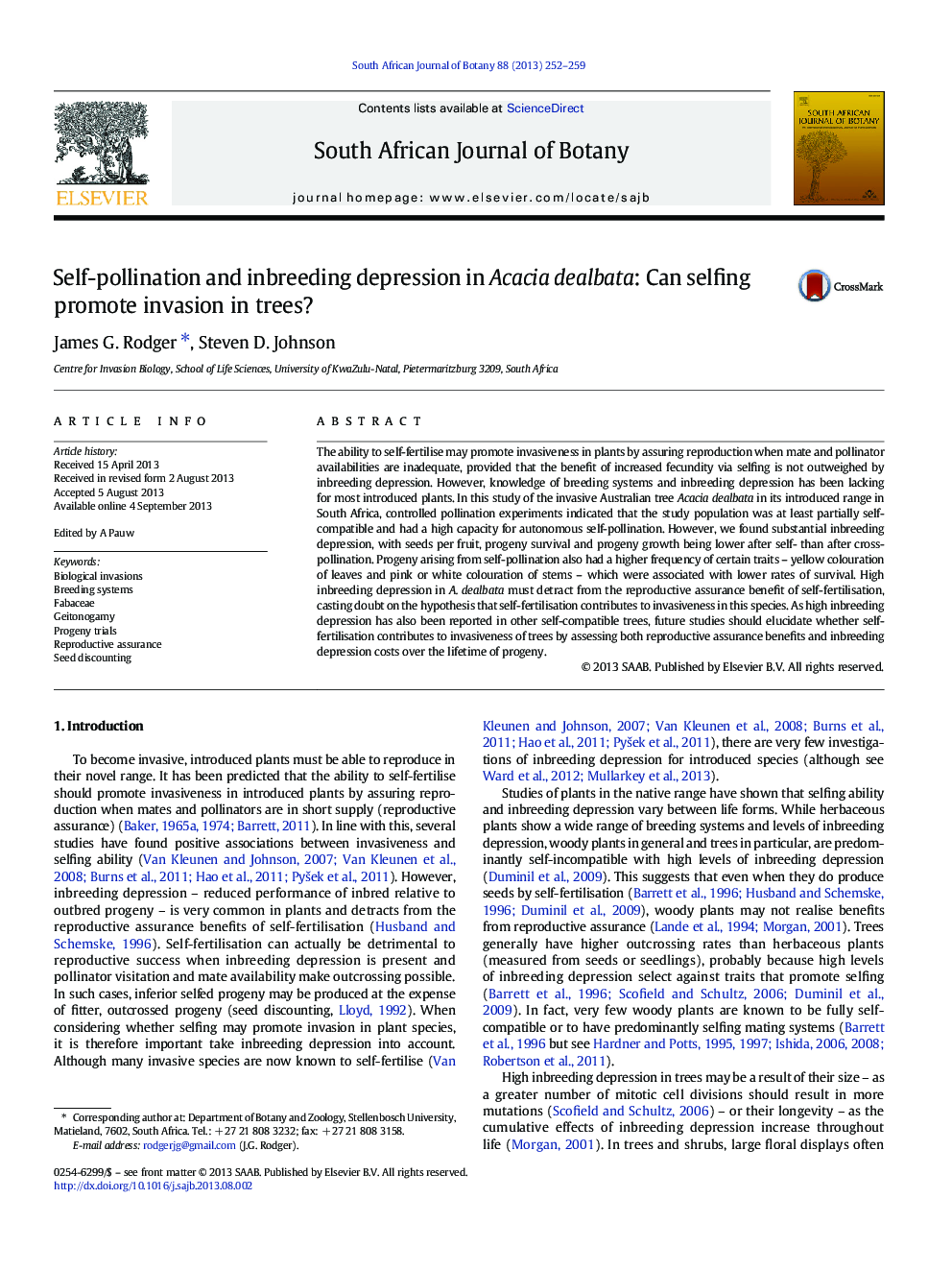| Article ID | Journal | Published Year | Pages | File Type |
|---|---|---|---|---|
| 6379108 | South African Journal of Botany | 2013 | 8 Pages |
Abstract
The ability to self-fertilise may promote invasiveness in plants by assuring reproduction when mate and pollinator availabilities are inadequate, provided that the benefit of increased fecundity via selfing is not outweighed by inbreeding depression. However, knowledge of breeding systems and inbreeding depression has been lacking for most introduced plants. In this study of the invasive Australian tree Acacia dealbata in its introduced range in South Africa, controlled pollination experiments indicated that the study population was at least partially self-compatible and had a high capacity for autonomous self-pollination. However, we found substantial inbreeding depression, with seeds per fruit, progeny survival and progeny growth being lower after self- than after cross-pollination. Progeny arising from self-pollination also had a higher frequency of certain traits - yellow colouration of leaves and pink or white colouration of stems - which were associated with lower rates of survival. High inbreeding depression in A. dealbata must detract from the reproductive assurance benefit of self-fertilisation, casting doubt on the hypothesis that self-fertilisation contributes to invasiveness in this species. As high inbreeding depression has also been reported in other self-compatible trees, future studies should elucidate whether self-fertilisation contributes to invasiveness of trees by assessing both reproductive assurance benefits and inbreeding depression costs over the lifetime of progeny.
Related Topics
Life Sciences
Agricultural and Biological Sciences
Agronomy and Crop Science
Authors
James G. Rodger, Steven D. Johnson,
